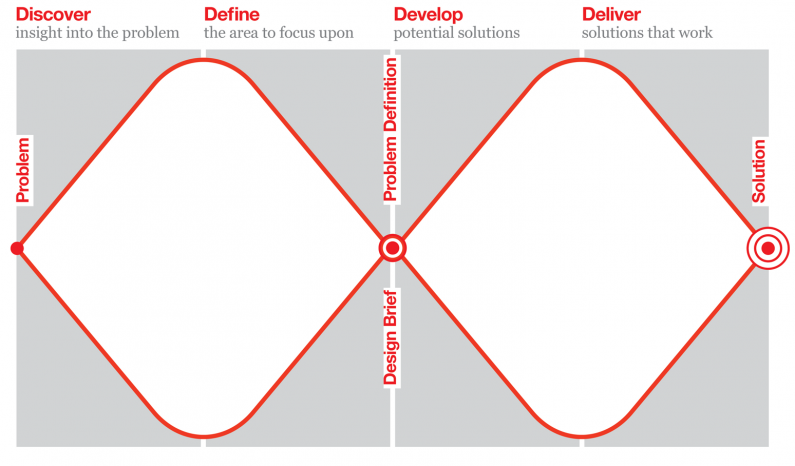I run a monthly-ish internal discussion forum for strategic UX topics at my workplace, building on things I’ve learnt from running IxDA London and other communities.
Today, we covered the topic of copy and content, which came about when my colleague Olga, a technical writer, pinged me on Slack about something she thought might be a good fit for one of our monthly discussions. The initial thing wasn’t copy or content-related but to cut the long-story short, we decided to host a discussion around the strategic value of copy and content.
The title is a bit of a funny one. The core of the conversation was actually about content operations, rather than strategy. The words “strategic” or “strategy” sometimes acts as a trojan horse that gets people excited, for right reasons, I think… but in this discussion, we actually didn’t really discuss much about strategy.
I think it’s easy to get confused over something that’s “strategic” vs. actual “strategy“.
To make myself clear, what I mean by “strategy” is really about what is the “thing” that enables us to gain an advantage over… well, something else… for some meaningful purpose / goal / direction / outcome / etc.
Strategic ≠ strategy
The word “strategic”, well, could mean anything, really. It’s more about the intention and effort of doing something in a way that improves our chances for desired outcomes, rather than the approach itself. Being strategic doesn’t necessarily have anything to do with strategy.
I could’ve just called the session, “content strategy”… or “operationalising copy and content at scale”, which would’ve been more accurate to what was being discussed, and those titles would also sound “strategic”… but somehow using the word “strategic” in the title makes it sound more tight and punchy.
Also — on one hand, it’s not like people wake up one day and decide “I’m not strategic” (ok, ok… maybe they do). But then, to say you are strategic sounds like it requires a bit more thought and intent to make it work. So, it helps to use the word to, I don’t know, drive that intention home.
So, I suppose one elephant-in-the-room question might be… can a piece of work within an org / product / team / etc. be “strategic” and yet also be completely disconnected from an organisation’s / product’s / team’s / etc.’s strategy?
I think so.
The way I’m thinking of it is that the word “strategic” is a synonym for “better operationalisation” or “better ways to get things done”.
I’ve just Google’d this:
“strategic”
- relating to the identification of long-term or overall aims and interests and the means of achieving them.
- relating to the gaining of overall or long-term military advantage.
and
“strategy”
- a plan of action designed to achieve a long-term or overall aim.
- the art of planning and directing overall military operations and movements in a war or battle.
(source: Oxford Languages)
So, “strategic” is actually more of a verb-like thing rather than a noun-like thing. A “doing” rather than a “what”. Activity vs. Approach…. i.e.
- “the identification…”
- “the gaining…”
Which sort of makes sense.
And the word, “strategic”, is not the same as “strategy”, which is more about approach, plans or means — from which people can use to make decisions with towards a more desirable direction.
Activity instead of Approach.
Is it pointless to be strategic if you already have a strategy?
To play devil’s advocate (sorry for the overused phrase), if you can indeed be doing things strategically despite that not being related to a / the strategy at all, isn’t that like a stupid thing to do?
Maybe.
But maybe the focus here isn’t so much about whether being strategic has to link up to strategy or not… but whether being strategic has advantages to… well, not being strategic. Whatever that means.
And “not strategic” can only be known, I think, when you have a way of determining:
- intent / purpose
- ability or a way of saying how one can or cannot do something
- some kind of “bullshit” test or meter — i.e. a way of knowing if it’s going to work or not
Which is a kind of similar in structure to what a strategy needs to contain:
- intent / purpose
- an approach or way to succeed
- some way of knowing if it’s worth it and confidence that it’s going to succeed
(not too far off from Rumelt’s definition of a good strategy)
The difference is that strategy can sort of stand alone on its own, but being “strategic” needs people and the work playing out in actuality.
Muscle > Means
I prefer to think of being strategic as sometimes more valuable than an actual, working strategy. This is because strategies can change, for all sorts of reasons, and they should change if it’s clear those strategies are not going to work. The way you would know if it needs to change is actually a people and intent thing — i.e. being strategic in the way you go about things… even if being strategic may not necessary be linked to a / the strategy at all.
So, I said the thing earlier about Activity instead of Approach, but I actually like to think of it in terms of “Muscle” versus “Means”. Often times, what you really want is a strategic muscle… especially in today’s environment where things are complex and constantly changing. You’ll acknowledge that the “means” of strategy will have to bend and flex and adapt with conditions.
So, anyway — this is me trying to rationalise why I didn’t call the session “Content Strategy”.






